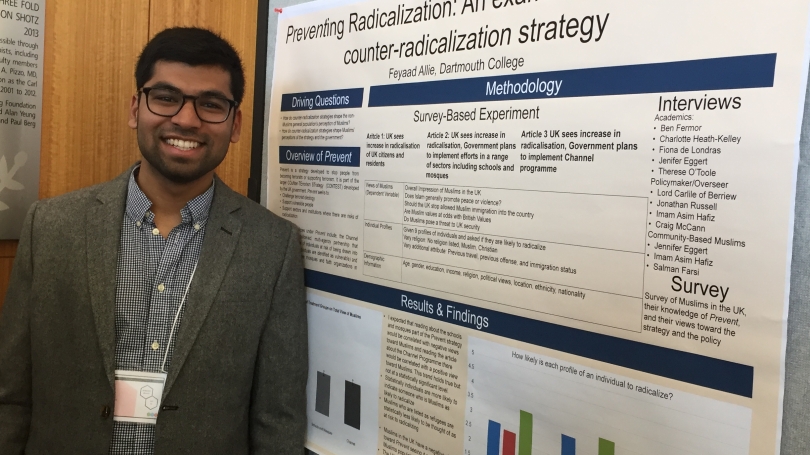
Menu
- Public Policy
- Leadership
- Funding
- News & Events
- About the Center
Back to Top Nav
Back to Top Nav
Back to Top Nav
Back to Top Nav
Traveling to the Stanford Research Conference was an extremely rewarding experience. The conference began on Friday April 15 with an opening ceremony and remarks from the organizers of the conference who spoke about the importance of research and developing communities of research as undergraduates. Throughout the course of the conference there were a series of professor plenaries with various Stanford professors who spoke about topics ranging from healthcare and labor economics to chemistry and physics. All of these sessions were valuable in exposing me to different types of research and stories of how these researching became interested in research.
The second day of the conference there were a series of student plenaries on a variety of topics. There were two of these plenaries that stood out the most to me and really expanded my understanding of research. The first was about the conceptions of race and space in the novel Invisible Man by Ralph Ellison. The student presenting discussed how different spaces that the characters existed in contributed to the understanding of race in the novel and in society more broadly. The second presentation that I really enjoyed was one regarding gender bias in political blogs. This research project looked at how political blogs on male and female presidential candidates contained disproportionate number of words related to families or gender specifically for female candidates. Both of these studies exposed me to two different types of research that could be applied to my own. The conceptions of space / race and language biases could both ways that we examine my research on counter-radicalization and Muslim communities.
On the final day of the conference I did a poster presentation about my thesis research. I presented about my thesis research on the UK’s counter-radicalization strategy, Prevent, and the impact that it has had on Muslims communities in the UK. I found that the strategy does not actively cause negative views toward Muslims because these negative views are already entrenched. Additionally, I found that certain attributes are more closely associated with Muslims and in turn radicalization; however, being a refugee is not one of these attributes.
Overall, the conference afforded me the opportunity to hear from professors and students from across the US about their research while also being able to present my own. I learned about new ways to approach research and how to think about applying new disciplines to the one I studied. I also gained valuable feedback on my own research and ways that I could think about improving it.
-Submitted by Feyaad Allie '16